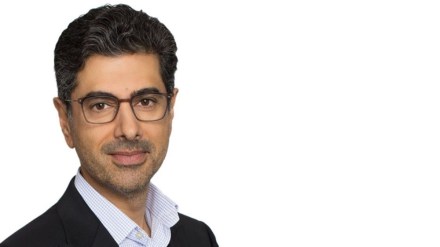By Nesil Staney
Alok Sama, advisor to private equity major Warburg Pincus, has rich experience in the investment banking space. He worked as the President and CFO of Softbank Group, founded hedge fund Baer Capital and is currently, working on his second book. He tells Nesil Staney that he worries about companies with no product, plan or revenues getting valuations of $5-$10 billion. Excerpts:
Which were the most challenging deals during your tenure at SoftBank?
The most challenging situation by far was Sprint, which was struggling when I joined Softbank in 2014, and could have meant tens of billions in losses. The multi-year project of engineering the merger with T-Mobile – as described in the book … — led to ten. of billions in profits instead. It was very challenging, and in the end, very satisfying.
There has only ever been one person at the helm of Softbank, and that is, Masayoshi Son. I have learnt a lot from him. He is a genius and fun to hang out with, besides.
How did you beat competitors during deal banking?
Investing is not a competitive sport. I think when people get caught up in momentum, there is that fear of missing out (FOMO) and this is when mistakes are made. Son is at his best when he identifies technology mega trends and makes transformative acquisitions to ride these trends, as he did with Vodafone Japan and Arm Holdings.
What are the best and worst deals inked by SoftBank in its history?
The acquisitions of Arm Holding (which I led) and Vodafone Japan (before my time) are the best, in my opinion. The former was based on a vision of AI at the edge of network, while the latter was based on a vision of smartphones dominating the world. As for the worst, I suppose that it’s WeWork, based on the magnitude of losses. Intriguingly, I hear WeWork India is turning out to be a success and I guess it is because it was always run like a real estate business that it is.
Is your advisor role at Warburg Pincus and other investment funds vastly different from your job as an investment banker?
Warburg Pincus is an amazing firm and I’m in awe of their domain expertise. While I find myself unable to add much to their thinking, the role of an investment banker is fundamentally different. While leveraged buyouts require financial engineering skills, tech investing frequently requires suspension of traditional investment training, and sometimes, relying on spreadsheets can be a constraint. If Son has listened to people like me, he would not have invested in Alibaba, for example, and he made over $70 billion on that deal. It is about getting the vision right, identifying mega trends, betting on right entrepreneurs. These aren’t skills bankers have, and that includes me.
Is there a bubble in technology investments? What are the best investment themes around the world?
The year 2000 was a bubble. Compare Cisco with Nvidia, for example. Both provide the infrastructure layer for the internet and AI, respectively. At the height of 2000 bubble, Cisco traded at over 200 times where Nvidia appears to have peaked at 35 times last year. There has been a correction recently in public markets, but let’s see how it unfolds. Generally, valuations in the tech seven have not really been out of touch with fundamentals.
I do worry about the AI hype in private markets. Some of these numbers – startups with no product or plan, let alone revenue being valued at $5-10 billion is a little silly. It is classic FOMO at the top.
But while bubbles are easy to identify, they are impossible to trade. Who knows how long will it last?
Does the moral of your book – The Money Trap align with your philosophy?
The book is a memoir. It is a honest attempt to describe my experiences in a way that people, hopefully, find interesting. I am driven by intellectual curiosity and a desire to learn, and when I read or write, it is my way of understanding and learning.
